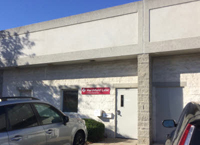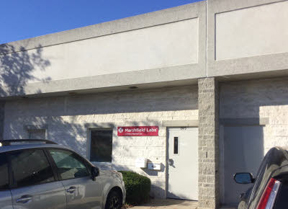
Marshfield Lab 288

VIN News Service photo
Marshfield Labs, one of the largest full-service private practice laboratory systems in the nation, recently sold its veterinary reference laboratory business to Idexx for an undisclosed amount. Based in Wisconsin, Marshfield serves 2,000 clients nationwide. This Marshfield location in Cleveland is one of four satellites in the Midwest.
A veterinarian-owned laboratory near Seattle and a nonprofit laboratory headquartered in Wisconsin soon will be owned by two of the largest corporations in the veterinary industry — Idexx and Zoetis.
The separate deals were solidified this month, marking the end of an era for Phoenix Central Laboratory and the veterinary side of Marshfield Labs, both of which have been in business for decades. Until now, they were holdouts in an industry dominated by a handful of major corporations.
Phoenix's shareholders voted Oct. 24 to sell their "by veterinarians, for veterinarians" company to Zoetis for a price in the range of $36 million — presumably making millionaires of some of Phoenix's 97 shareholders, who can own up to 15 of the company's 440 shares. Zoetis officials haven't publicly announced the buy but confirmed it Wednesday in a statement to the VIN News Service. "We look forward to completing the acquisition and will have more information to share at that time," officials said by email.
Zoetis's decision to purchase a reference laboratory marks a new direction for the veterinary pharmaceutical company. The veterinary laboratory realm has for decades been dominated by the virtual duopoly of Antech and Idexx. Together, the companies command a majority of all companion animal reference lab revenue in the U.S.
Phoenix derives its clientele mainly from Oregon, Northern California, Washington and Alaska.
Focused on growing a presence in the Pacific Northwest, Idexx, which is headquartered in Maine, originally sought to acquire Phoenix. Since 2016, it had been embroiled in a takeover bid encouraged by a faction of disgruntled Phoenix shareholders. In January, Idexx made a final offer of $29 million for the laboratory. A majority of shareholders, many of whom are veterinarians and eschew Idexx because of its market dominance, ultimately rejected the deal and agreed last month to openly solicit other offers.
But Idexx wasn't interested in just Phoenix. The company also had been wooing the veterinary arm of Marshfield Labs, a reference laboratory and division of Marshfield Clinic, a large network of human hospitals located primarily in Wisconsin. Last week, officials announced that Idexx acquired Marshfield's veterinary business, having outbid Zoetis, Antech, Heska and Kentucky-based ZNLabs. ZNLabs is one of few remaining privately held independent veterinary reference laboratories in the United States.
The sale price was not disclosed.
In a letter to clients, Marshfield executives characterized the deal as symptomatic of a rapidly changing profession.
"The veterinary industry is changing at an accelerated rate, including the diagnostic sector," the letter states. "Marshfield Labs also realizes that to maintain leadership in this dynamic field, continuous investment in service development is critical to keep pace with the demands customers have for new technologies and information management solutions. Competition for resources within our rapidly expanding healthcare system has, however, made it increasingly difficult to maintain this high level of commitment expected by our customers.
"We write today to inform you that after a thoughtful and deliberate assessment of our future we have sold Marshfield Labs' Veterinary Reference Lab operations to Idexx Laboratories, Inc."
Idexx simultaneously sent its own letter to Marshfield clients, noting that the changeover will begin slowly: "We are in the early days of a thoughtful integration process and are committed to keeping you fully informed as Marshfield Labs' Veterinary Reference Lab joins the IDEXX Reference Laboratories network."
Reached by email and phone, Marshfield officials declined to talk with VIN News. So did John Evans, who was hired last year as Phoenix's chief executive officer.
"We don't talk to press," Evans said.
A look back
Faye Sturtevant, a veterinary clinical pathologist by training who'd been with Phoenix since it opened and retired last year as its CEO, has plenty to say.
In an interview with VIN News, the 68-year-old recalled joining a very new Phoenix Central Laboratories while in her late 30s, soon after it had been incorporated by three Seattle-area veterinarians who had just watched a group of colleagues sell their community laboratory to a corporate buyer, which went bankrupt and closed it.
"They got together and went in to have this local laboratory, selling shares for $1,000 each," she said. To protect the lab's independent status, shares of Phoenix were available for sale only to veterinarians in Washington and lab employees.
Sturtevant had just graduated with her PhD and recalls being opinionated about how a veterinary lab should operate. "I got wind that these guys up here wanted to start up a lab, and I thought, 'I'll give it five years,' " she recalled. "Thirty years later, I was still there."
Hired to direct the lab, it took Sturtevant three months to get things up and running. By March 1989, Phoenix had opened in a 1,400-square-foot storefront on the edge of Woodinville, Washington, and was testing samples.
Today, the laboratory sits on property in the picturesque waterfront town of Mukilteo, 25 minutes north of Seattle, operating with around 120 employees.
It's unknown to VIN News whether those employees will have a longterm future with the laboratory once ownership changes hands, but Sturtevant expects that they will all remain employed, at least at the outset.
Sturtevant acknowledges that during the past three decades, times have changed for Phoenix. Shareholders, who make up the core of Phoenix's clientele, are starting to retire and therefore no longer sending business to the laboratory. At the same time, more independently owned veterinary practices are being sold to corporate chains that do business with Idexx or Antech. (Antech's parent, Mars Inc., is the largest owner of veterinary practices in the world.)
While Phoenix isn't hurting — the laboratory services about 1,200 clients a year — the business trajectory for independent laboratories seems fraught, she said.
"These corporations are owned by business people, not veterinarians," Sturtevant said. "They are venture capitalists who do it for the money, and they found this niche in the veterinary market. They're looking to make as much money as they can and get out in five years."
While she's disheartened to see the profession stray from its independent roots, Phoenix's sale to Zoetis means the entrance of another player in the laboratory market, bringing with it welcomed competition.
"I think the sale brought a good outcome; it was a good compromise," she said. "I wouldn't say it was something I wanted to do, but I was in the minority. I thought Phoenix could retain their independence."